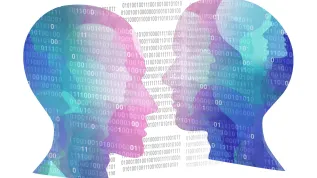
Rock, jazz, disco? Taste in music may influence the degree of feeling pain while listening to music. Researcher from the Medical University of Gdańsk will investigate the phenomenon of music analgesia, pain relief through sounds.
"Pain is a normal physiological experience of every person. It has many valuable functions - directs our attention to threats, tells us that something is wrong with our body, enables wound healing. However, strong and persistent pain causes suffering - an unpleasant sensation significantly deteriorating the quality and satisfaction with life" - noted Krzysztof Basiński from the Department of Quality of Life Research, Medical University of Gdańsk.
Researchers are constantly searching for new treatments for pain, often going beyond the usual pharmacological methods. An idea considered in the UK involves taking advantage of the phenomenon of music analgesia, or reduced perception of pain while listening to music.
"Studies of this phenomenon began in the 1960s. Science published a study that was conducted on 5 thousand people - dental patients. Patients who listened to music during various dental procedures, later declared that the procedures hurt a little less than those who did not listen to music. That was the first hint that there could be something there" - described Basiński.
Research undertaken to determine the impact of music analgesia and explain the reasons for this phenomenon, give conflicting results. Some studies indicate a very significant decrease in pain sensations while listening to music, both in hospital conditions: after surgery, tumours, chronic pain, and in laboratory conditions. Other studies show no significant effect of music on pain perception, or the effect turns out to be comparable with other stimulants, such as listening to noise, the sounds of nature, solving math problems.
"The problem could be not whether music can be heard or not, but what kind of music it is. People have different tastes, musical preferences. Each person reacts differently to music. Whether or not we like a certain song depends on fairly complex psychological and social factors" - noted the researcher.
In the project funded by the National Science Centre (Prelude programme) Basiński wants to examine the impact of the individual tastes on the phenomenon of music analgesia. In the planned study he intends to test the hypothesis according to which the music consistent with the preferences of the patient will have a stronger pain-relieving effect, than music incompatible with the patient\'s taste.
To carry out his experiment, Krzysztof Basiński will need more than one hundred completely healthy volunteers. During the study, when volunteers will listen to pieces of different kinds of music, he will induce a little pain. There is, however, nothing to fear - it will not be severe.
"The task of each volunteers will be to put his or her hand into a tub with cold water and state the time at which he or she begins to feel pain. In this way we determine the pain threshold of the subject. The second thing that I measure is how long the test subject can hold his or her in ice water. It is a measure of pain tolerance" - he described.
At the same time, subjects will hear specially selected, 15 seconds long music fragments, previously only used in various research projects and unknown to volunteers. "The subjects will have to describe how much they like the music they hear. Musical stimuli will be selected to cover a wide range of musical genres and styles, causing different sensations and emotional associations" - he explained.
The results of the project - according to Basiński - will contribute to increasing the knowledge of mechanisms of the musical analgesia phenomenon. They will also allow to more accurately predict how significant the analgesic effect of a song in a particular individual will be. In the long term, the results may allow to develop more effective methods of non-pharmacological, complementary treatment of pain.
Krzysztof Basiński\'s research will begin this autumn.
PAP - Science and Scholarship in Poland
ekr/ agt/ mrt/
tr. RL













